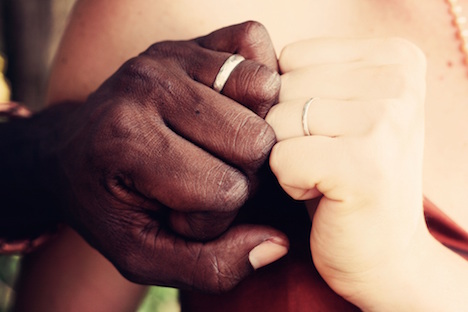What do teens think about marriage? The New York Times recently presented that question to middle- and high-school aged teens in response to a report indicating that more people are choosing to living together than wed, and society seems to be OK with it. The teens’ responses are illuminating — so illuminating that I believe we need to have a conversation with young adults about marriage.

But, let me dial it back .
Riffing off a survey by the Pew Research Center, the Times ran an article, “Unmarried Couples Gain in Numbers, but Survey Finds Married Ones May Be Happier,” saying that “unmarried couples report significantly less satisfaction in their relationships than do married couples, who report higher levels of trust in their partners’ honesty, fidelity and spending habits,” and then followed up by asking teens, well, what do you think about marriage and cohabitation?
First, I have some problems with what kind of unmarried couples were surveyed — were they couples who are living together for mere convenience or long-term couples who reject the institution of marriage for what they consider valid reasons, like economists, life partners and co-parents Betsey Stevenson and Justin Wolfers. who reject marriage because of taxes. Are they really more dissatisfied with their division of household chores, communication skills or work-life balance, as the article suggests they would be? Probably not, because they are much more intentional in their partnering (which everyone should be).
Money matters
And, let’s face it — finances are everything when it comes to getting married! According to the lead researcher of the Pew survey cited in the article, about 40 percent of those cohabiting said finances was a major factor of moving in together, right after love and companionship. Oddly, only 13 percent of married couples said financial considerations played a part in their decision to wed.
Which again proves that most people have no idea that marriage is, at its heart, a financial decision, and thus the poor young students are absolutely clueless about marriage being a legal document that binds you financially to your spouse. Shouldn’t young people understand that?
While quite a few say they don’t see a great need for marriage, others are way too hopeful about it:
It gives you a companion and best friend, who sticks with you through all your excitable and troubling moments in life, and you never have to worry about them not being there.
Oh boy! With a 40% to 50% divorce rate, clearly many “best friends” are not going to stick with you though the “troubling moments in life.”
Another student confuses love with marriage:
Marriage is just a title, a contract; it only begins to matter once love is in the picture.
Marriage is not just a title, but it is indeed a contract — a legal one! And love, as historian Stephanie Coontz has documented in her illuminating book, Marriage, a History, has made the whole institution unstable.
Some confuse a wedding with a marriage:
I get that the rings and the ceremony signifies a union between two people, but the amount of money spent and the whole process of wedding planning just seems too overly excessive.
It doesn’t have to be — you don’t need a big fancy party to marry. And if you’re planning anything, it should be for the marriage itself.
And then there’s one wise student who realizes that, well, you can always game the system:
There really isn’t much of a difference between a long term, committed relationship and marriage. The only real lifestyle change I think is tax benefits. And yes, I would absolutely marry a friend for the tax benefits until we can actually afford to live.
Societal pressure
I’m heartened that some students recognize — and reject — the societal pressure to wed, acknowledge that it isn’t as important nowadays as it once was and believe that you can be just as committed to a live-in partner as a legally wedded spouse.
Still, we don’t teach kids about marriage. They learn about it by observing their parents, married or not and who may not be stellar role models, and pop culture, so they really don’t understand its history or question why marriage matters today. Because, in the States anyway, it does — just ask same-sex couples why they fought so hard for the right to wed. Marriage shouldn’t matter, but it does.
So if something is so important legally and socially, shouldn’t we teach youths about it — from the church’s initial rejection of it to coverture to the way it has shaped policy that privileges marriage above all other relationships from how it historically has benefited men much more than women?
I love that psychologist and author Alexandra Solomon teaches a Marriage 101 class at the Family Institute at Northwestern University — it’s so needed!
But that’s just one class at one college taught to a small group of students of college age even though, as the Times article illuminates, many teens have already formulated thoughts about romantic relationships and marriage way before that. Do you think it would help young adults to teach them about the history of marriage?
Not how to be a good spouse because, well, they may not want to be a spouse at all — good or bad — and because historically marriage education has created a bit of an ideological monster. But to teach them about how and why we have married, not only in the West but across cultures and time, to help them understand why marriage mattered so much in the past and whether it still needs to.
It’s been years since I’ve said these words but, I do.
Want to figure out if marriage is for you? (Of course you do!) Read The New I Do: Reshaping Marriage for Skeptics, Realists and Rebels (Seal Press). You can support your local indie bookstore or order it on Amazon. And we’re now on Audible.
















